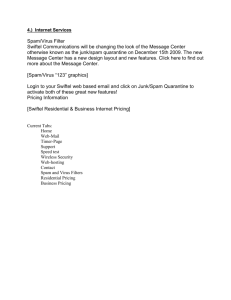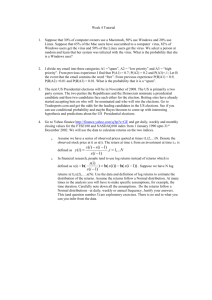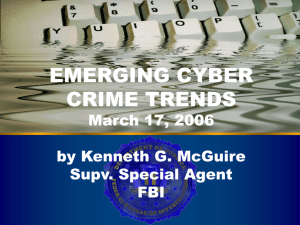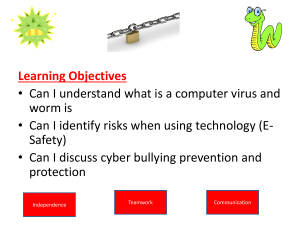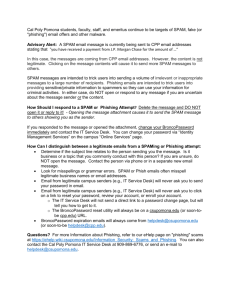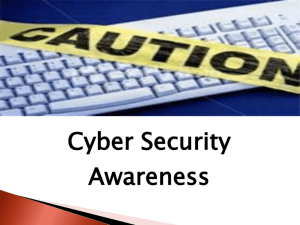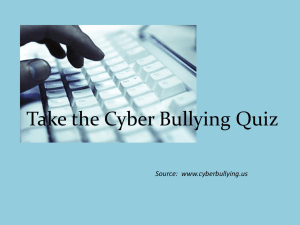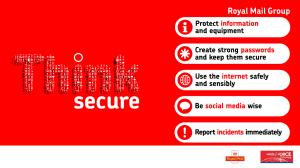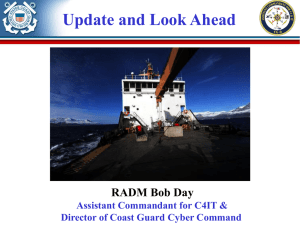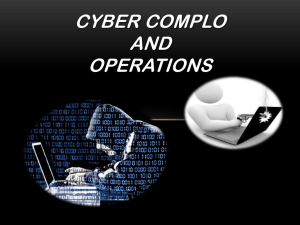Breaking Trust on the Internet: Ethical Issues
advertisement
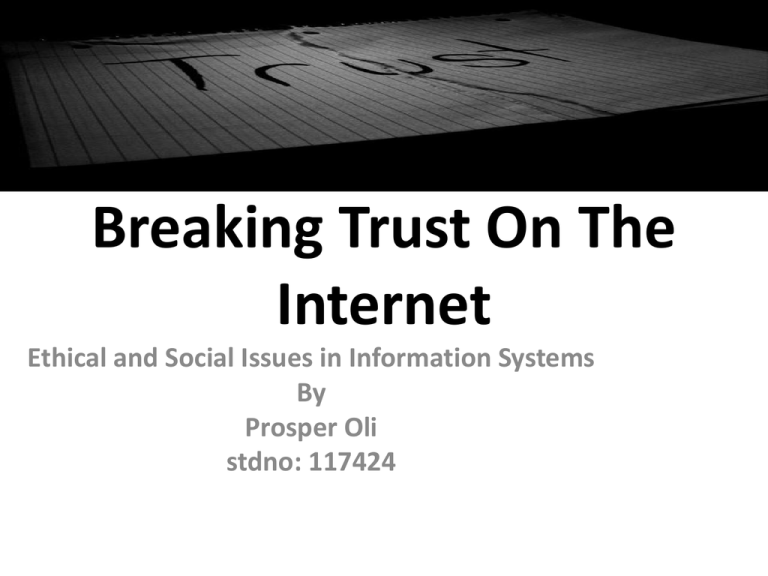
Breaking Trust On The Internet Ethical and Social Issues in Information Systems By Prosper Oli stdno: 117424 INTRODUCTION: • What is Internet? The Internet is a global system of interconnected computer networks that use the standard Internet protocol suite (TCP/IP) to serve several billion users worldwide. • What is Trust? Complete confidence in something. INTRODUCTION(continue) • Internet is today one of the most important part of our daily life. There are large numbers of things that can be done using the internet and is used for different purposes depending upon the requirement. • Easy and cheap communication • Share files with others easily. • Loads of information • Financial Transaction • services INTRODUCTION(continue) • Then this presentation is on the BREAK of that trust in the accept of internet perspective. Breaking Trust on the Internet Identity Theft Phishing. Chat Room Predators False Information Cyber Bullying E-mail Spam Virus Threat Security Identity Theft • Definition: when someone uses your personal information without your permission to commit fraud or other crime. This can be done in various ways like using someone’s Name. Social security number. Credit card number. Bank account number. Etc. Identity Theft Graph How it Occurs • Phishing: Emails that appear to be from IRS requesting you to confirm information. Emails that are thanking you for a recent purchase (or something you didn’t buy). Examples of Phishing Chat Room Predators • Chat room : supports real-time discussions among many people connected to network • Some pedophiles(any sexual interest in children or the act of child sexual abuse, often termed "pedophilic behavior".) meeting children, Through chat rooms. False information • Quality of web-based information varies widely. • Internet helps spread false information • Anybody can write and update false information on the internet through blog or other means. • Not everything on the internet is accurate or correct. Cyber bullying • What Is Cyber bullying? • Cyber bullying is the use of technology to harass, threaten, embarrass, or target another person. • By definition, it occurs among young people. When an adult is involved, it may meet the definition of cyber-harassment or cyberstalking, a crime that can have legal consequences and involve jail time. E-mail spam • Electronic spamming is the use of electronic messaging systems to send unwanted bulk messages (spam), especially advertising. While the most widely recognized form of spam is e-mail spam, Virus Threat • A computer virus is a small software program that spreads from one computer to another and interferes with computer operation. • A computer virus might corrupt or delete data on a computer, use an email program to spread the virus to other computers, or even delete everything on the hard disk. Virus threat case • A hacker provided electronic files containing hotel advertisements to the newspaper, which began running the advertisements on its website. He then replaced the hotel advertisements with a file containing a malicious computer code, or malware, which infected the computers of people who visited the website and required them to purchase antivirus software for $49.95 to regain control of their computers. If the users did not purchase the software, their computers immediately became flooded with pop-ups containing false "security alerts," and all information, data and files stored on the computers became unreachable. • http://www.fbi.gov/wanted/cyber/peteris-sahurovs Security • Internet security is a branch of computer security specifically related to the Internet, often involving browser security but also network security on a more general level as it applies to other applications or operating systems on a whole. Security • Its objective is to establish rules and measures to use against attacks over the Internet. • The Internet represents an insecure channel for exchanging information leading to a high risk of fraud, such as phishing. • Different methods have been used to protect the transfer of data, including encryption. Security Security break case • Attackers forge Google's Gmail credentials Skype, Microsoft, Yahoo, Mozilla also targeted Extremely sophisticated hackers, broke into the servers of a web authentication authority and counterfeited certificates for Google mail and six other sensitive addresses. http://www.theregister.co.uk/2011/03/23/gmail _microsoft_web_credential_forgeries/ Final thoughts • Know this, your bank will NEVER ask you for account number or password. Law Enforcement needs to be aware of: • Difference between annoying and dangerous communications • How to investigate a cyber crime • How to obtain information from an ISP QUESTION TIME
